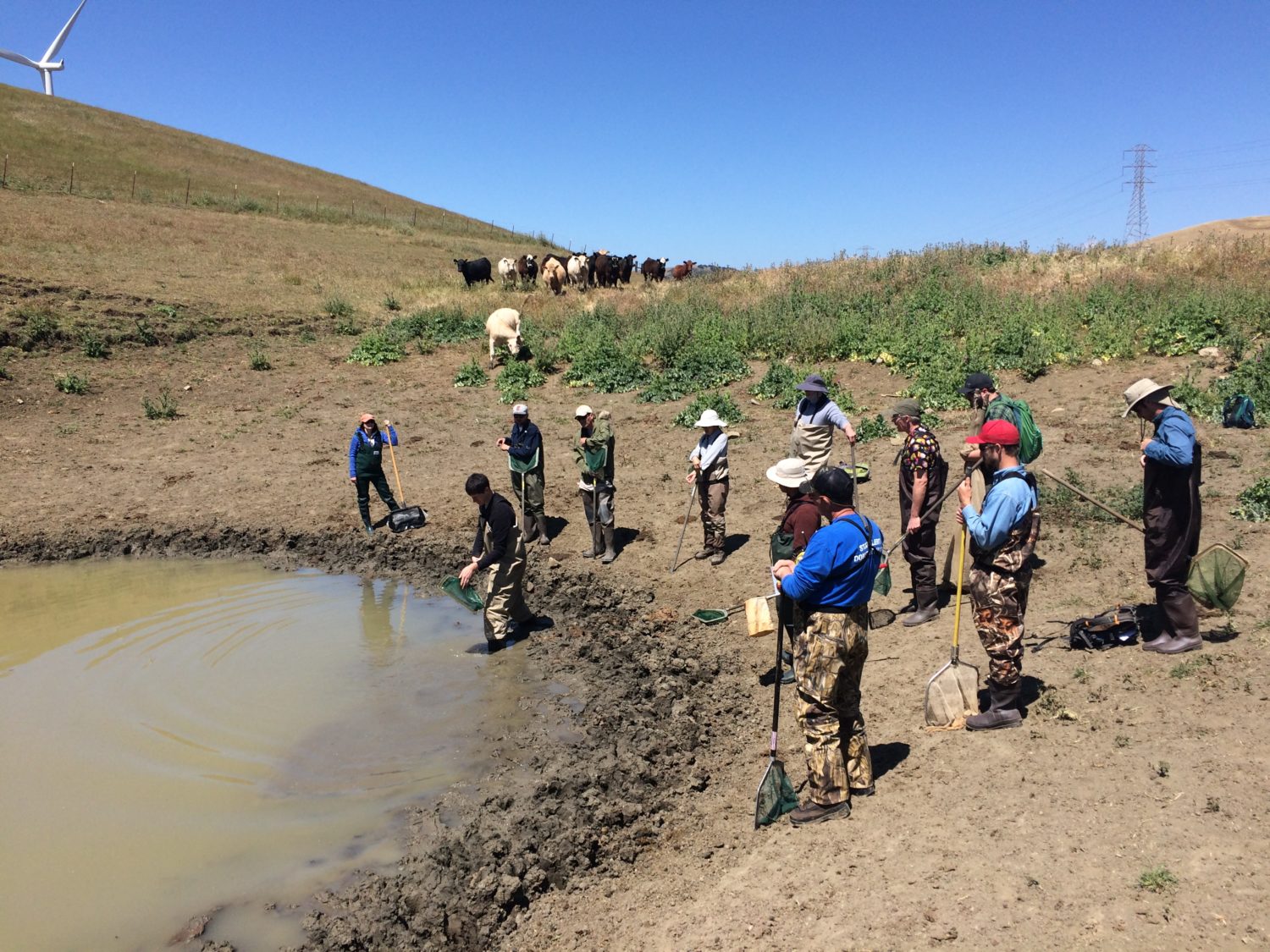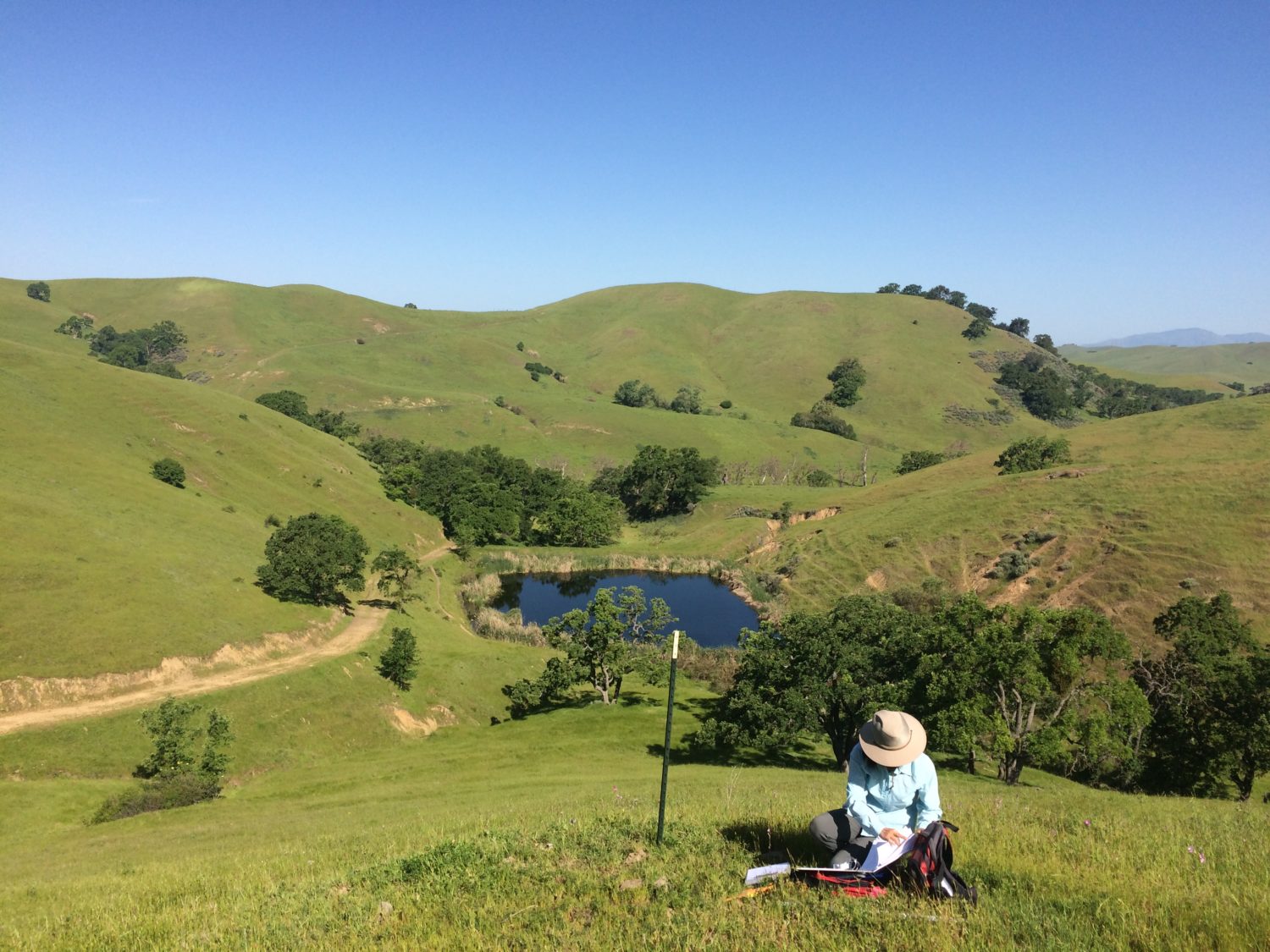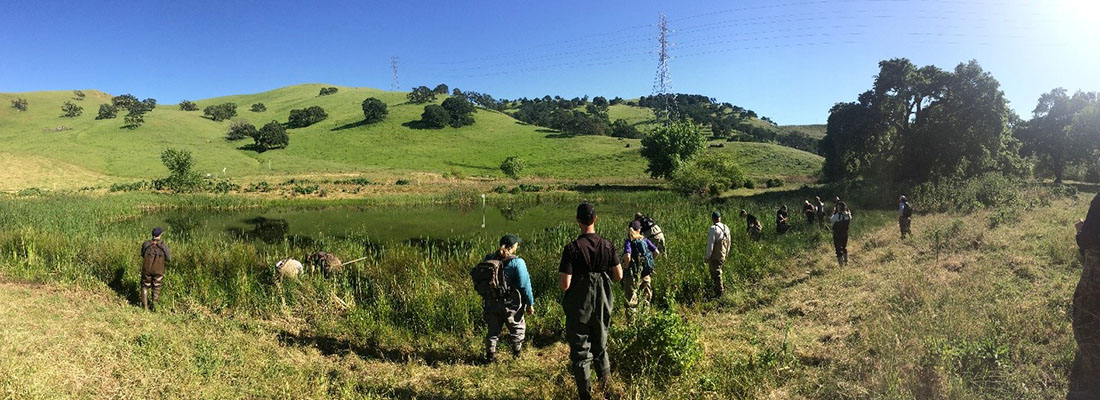
Species Workshops
The Alameda County Conservation Partnership frequently provides workshops, field days, and educational events to provide information about species of special interest including:
- California Tiger Salamander (Ambystoma californiense)
- California Red-legged Frog (Rana draytonii)
- Alameda Whipsnake (Masticophis lateralis euryxanthus)
Check our news and events page for information about upcoming species workshops.
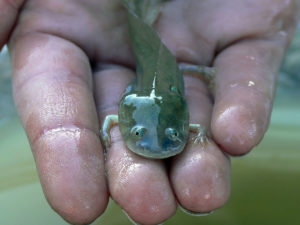 California Tiger Salamander (CTS) workshops focus on biology, ecology, habitat, and management. The workshop is led by respected CTS specialists. Topics include:
California Tiger Salamander (CTS) workshops focus on biology, ecology, habitat, and management. The workshop is led by respected CTS specialists. Topics include:
- Basics of amphibian biology and conservation
- Evolutionary relationships among tiger salamanders
- How to identify CTS eggs, larvae, and adults
- Life cycle, demography, and population dynamics
- Predators and prey
- Threats to CTS populations
- Strategies for conservation and recovery
During the Field portion of the CTS workshop, participants learn:
- Proper field equipment use and cleaning
- Seining and dip-netting for CTS larvae
- Appropriate care and handling of captured CTS
- Approaches for detecting CTS in upland habitats
- Importance of gophers and ground squirrels
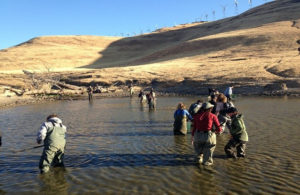 California Red-legged frog (CA RLF) workshops are led by specialists with extensive knowledge and handling of these species. The classroom portion of the workshop focuses on:
California Red-legged frog (CA RLF) workshops are led by specialists with extensive knowledge and handling of these species. The classroom portion of the workshop focuses on:
- Taxonomy, phylogeny, and distribution
- Habitat and population dynamics
- Threats
- Management and regulation of CA RLF
In the field, participants learn:
- Decontamination techniques
- Detecting frog eye shine
- Capturing, handling, sexing, and measuring of tadpoles and adult frogs.
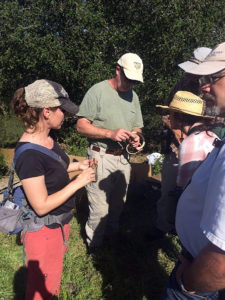 Alameda Whipsnake workshops are led by leading experts in this field.
Alameda Whipsnake workshops are led by leading experts in this field.
Topics covered include:
- Biology of the Alameda whipsnake
- Habitat management
- Strategies for successful conservation planning and impact analysis
- Monitoring projects with potential impacts to Alameda whipsnake
The field portion of this workshop covers:
- Predator and prey relationship
- Population genetics and implications for management
- Species differentiation
- Trapping techniques
- Field study and marking techniques
- Strategies for conservation and recovery

